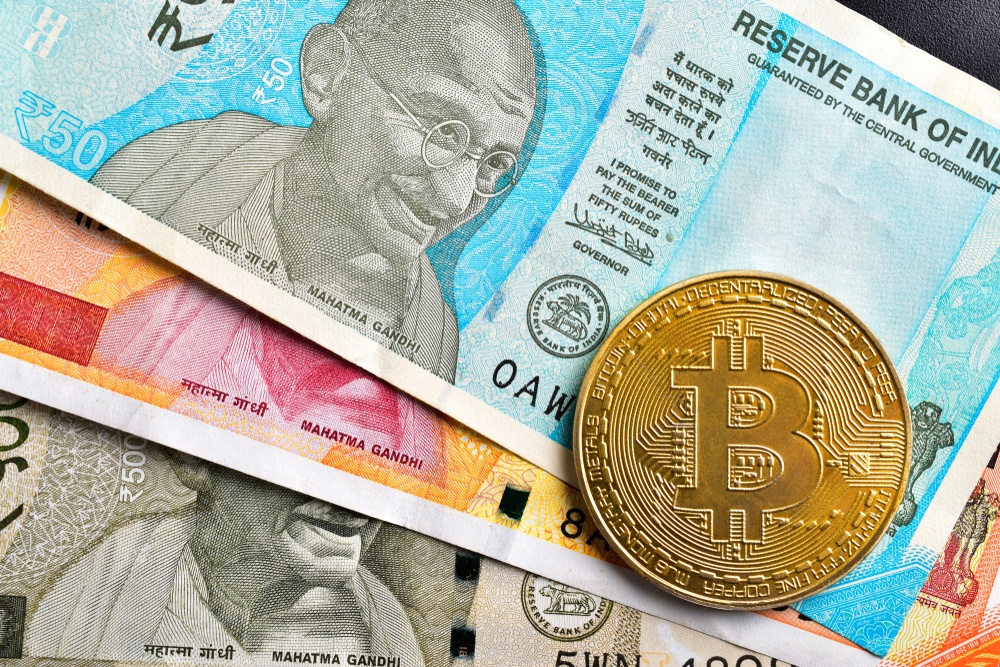India’s Crypto Dial Leaned Regulation Before Central Bank’s ‘Ban’ Shove

India could become the world's first major economy to enforce a sweeping crypto ban. | Source: Shutterstock
India – that has proposed a total ban on crypto yesterday – had planned to regulate digital currencies at first but the Reserve Bank of India (RBI) has forced the inter-ministerial cryptocurrency committee to prohibit the digital assets.
Regulation was the initial goal
According to a report by Business Standard, Economic Affairs Secretary and head of the inter-ministerial committee on cryptocurrencies and blockchain technology Subhash Chandra Garg was not in favor of banning crypto. On the contrary, he argued that regulating digital currencies “will likely lead to better results.”
At its first meeting at the end of 2017, the committee had come to a broad agreement that it would be “too difficult” to push out a ban on crypto, fearing that it could boost the rate of crypto-related illegal activities, the news outlet reported.
Instead of banning them, the committee sought to determine the nature of crypto. The lawmakers also wanted to answer the question of whether digital currencies had to be classified as commodities or financial assets.
But the committee’s views have radically changed in its second meeting that was held in February 2018. According to the news outlet, the regulators wanted to enforce a complete ban – which has happened yesterday – on cryptocurrencies after India’s Finance Minister Arun Jaitley presented the Union Budget for 2018-19.
According to Jaitley, the Indian government does not consider digital currencies as legal, stating that regulators “will take all measures to eliminate the use of these crypto-assets.”
The result: India has decided to ban crypto
Supporting Jaitley, RBI Deputy Governor BP Kanungo and Central Board of Direct Taxes (CBDT) Chairman Sushil Chandra urged the committee to initiate a total ban on cryptocurrencies, arguing that digital assets attract “a chain of black money” and that “uninformed” people are “lured” to purchase crypto.
According to the Business Standard – despite the pressure towards prohibition –, Garg was still not convinced that a crypto ban is the right choice in the case. Citing South Korea as an example – that had rolled back its plans to prohibit crypto –, he stated that the matter has to be discussed in an upcoming G20 summit.
As a compromise, the secretary has asked both the RBI and the CBDT to roll out a draft law in the case the government decides to ban crypto with Garg suggesting that prohibiting only cryptocurrencies “in payment systems.”
Supported by Ministry of Electronics and Information Technology Secretary Ajay Prakash Sawhney – who believes India should embrace crypto as it is “being in the forefront of technological innovation” –, Garg agreed with the other members of the committee to create a document on banning and another on regulating cryptocurrencies.
The final decision in the case was made in January 2019 at the last meeting of the committee where the members had gone with a draft law imposing a total ban on cryptocurrencies.
As soon as India’s crypto prohibition comes into force, the citizens of the country will be barred from holding, buying, selling, or transacting cryptocurrencies. Breaking the law could result in prison sentences between one and ten years as well as fines up to three times the amount a person has earned.
At the same time of announcing the proposed ban on cryptocurrencies, the committee has also told the public about its plans to create a “Digital Rupee” system, making it the only legal crypto in India.